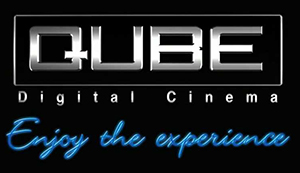
Qube Refutes TNFPC Allegations
We have come across a spate of articles published across various newspapers and websites as well as the Press Release of the Tamil Nadu Film Producers’ Council (“TNFPC”) dated May 8, 2015 where they have raised certain issues and made certain incorrect and negative statements about digital cinema service providers and their operations and especially with regard to Qube which is a division of our company, Real Image Media Technologies Pvt. Ltd. (“Real Image”). We would like to take this opportunity to set the record straight and refute the false and incorrect allegations made against our company.
Introduction
Real Image is a pioneer in cinema technology and has greatly helped the Indian movie industry over the last three decades by introducing computer based editing with Avid, digital sound with DTS and digital cinema with Qube, a technology for end-to-end digital cinema that was entirely developed in India and has been sold around the world. Real Image is the company largely responsible for helping the Indian film industry rise above the competition from satellite television in the 1990s by providing the tools to achieve slick editing and crystal clear surround sound and thus bring audiences back to theatres. In rolling out digital cinema at a time when no theatre was willing to invest the money, Real Image has risked huge capital invested by reputed international companies such as Nomura, Intel, Cisco and Streetedge and created a win-win model that has benefited producers, distributors, exhibitors and most importantly, audiences.
Benefits of Digital Cinema
Exhibitors have benefitted due to the higher quality of digital cinema and the enormous flexibility they now have to play many movies in one day. They also have much more content available to them and every theatre is now a release theatre unlike in the past when the high cost of prints restricted releases to just a few prime theatres and others had to be content with second run prints. And best of all, these advantages have come to them without having to incur huge capital costs because Real Image has funded the purchase of equipment where the theatre was unable to afford the expenditure. Producers have benefitted because Real Image does not charge for converting a movie into the digital cinema format unlike in the rest of the world where such digital cinema mastering is a cost for the producer. Producers also benefit from the strong anti-piracy features such as the unbreakable encryption and the invisible forensic watermarking in digital cinema that helps us accurately identify the source of piracy by analzing the pirated copy with our software. Finally, the entire overseas market is now opened up for Tamil cinema at a very low cost because of digital cinema. Most importantly, Distributors and Producers have both benefitted from the much lower cost of release today – as low as ₹325+tax per show and the flexibility to release much more widely and thus offset the ill effects of piracy. The vast cinema-going public in Tamil Nadu has been hugely benefitted by digital cinema. Because every screen in now a release screen and there are many more Tamil films made today, people across the state, in the most rural areas, can enjoy watching movies, big and small, on the release date, just like people living in cities and large towns. Best of all, every show on a digital cinema screen is a premiere show with the same high quality picture and crystal clear digital sound with no scratches and blemishes, whether it is the first-day-first-show or it is after several weeks of release.
Having done all this to benefit producers, distributors, theatres and the cinema-loving people of the state, it pains us to see some producers making false & derogatory statements, indulging in baseless allegations and staking unreasonable claims to cinema advertising which is not theirs in the first place.
Our Responses to TNFPC’s Allegations
1. The TNFPC claims that Qube/UFO have been charging very high rates to the producers and have been earning in crores and crores. Qube/UFO have raised rates to exorbitant levels.
Qube has not changed its digital print fee rates for many years, which fact we have also highlighted to the Council in a recent letter dated Mar 9, 2015 so they are fully aware of the facts. It is important to note that Qube has only introduced additional flexibility to aid producers and distributors, especially of smaller films, by bringing out weekly and per-show rates. Currently, a film can release at a cost of merely ₹325+tax per show subject to a minimum of 7 shows. When compared with the ₹60,000 to ₹80,000 per film print that producers paid in 2005, we have only helped the industry enormously, especially in Tamil Nadu. In fact, there were barely 80 Tamil films released in 2005 when digital cinema was introduced by us but in 2014, there were over 300 Tamil films produced. This amazing increase has happened mainly in smaller films and clearly shows how digital cinema has democratised the film industry and allowed many more talented people to make films.
2. The TNFPC claims that Qube/UFO earn approximately ₹400 crores through advertising revenue from playing their films. And Qube/UFO have refused to give this revenue to the producers. From the beginning, advertising rights have always belonged to the theatre. From the 1950s, wel before digital cinema was introduced, theatres sold their advertising to companies such as Blaze Advertising, Dimples Cine, Salvos and Orienta Cine. In 2005, our company decided to enter the cinema advertising business apart from the digital cinema business. Using our patented centrally controlled advertising technology (Indian Patent Nos. 202969 and 202980), we have built this into a growing business and benefitted theatres across the country by improving their advertising revenues. We have a large advertising sales team in Delhi, Mumbai, Bengaluru, Hyderabad, Kolkata, Kochi and Chennai and partners across the country to help us sell cinema advertising and convince advertisers to use this medium apart from television and radio. Many of our theatres contract their advertising with us but many others also sell their own advertising. Multiplex chains such as PVR, INOX and SPI Cinemas (Sathyam) sell their own advertising while numerous single screens sell their advertising to other independent agencies.
We contracted legally with theatres for advertising which has historically been their right and if producers disagree that the advertising rights belongs to theatres, then they should discuss this question with theatres and arrive at a suitable conclusion. We cannot suddenly be coerced in this fashion to part with the advertising by the TNFPC when our business has been built on the basis of advertising rights that we legally contracted from theatres. It’s certainly true that audiences come to the theatre to watch movies. But that doesn’t mean everything that the theatre earns belongs to the producers! Theatres have multiple revenue streams including advertising, food sales, parking, etc. All these revenue streams depend on audiences coming to the theatre but legally, these revenue streams belong to the theatre and the theatre compensates the producer/distributor by sharing their ticket sales revenue as agreed contractually between them.
We can also point to telelvision channels that play movies and earn advertising revenue and FM radio stations that play movie songs and earn advertising revenue. Such advertising is a key revenue stream for television and radio and is not shared with the producer either! We know of no instance in history where theatre advertising was shared with producers. It is unfair of the TNFPC to coercively ask for what is not theirs in this manner. The figures being discussed for advertising in Tamil Nadu by the TNFPC are also totally incorrect. As Real Image is a privately held company, the revenue figures are not available in the public domain so we can instead look at our competitor UFO Moviez Ltd. which is now a publicly listed company with its financials available on the SEBI website. In FY2014, UFO
Moviez earned ₹90.77 crores nett of sales commissions across their 3,685 screens with advertising rights in India. This works out to an average of ₹2.46 lakhs per screen per year. Real Image has contracted the advertising in about 650 screens in Tamil Nadu and thus our advertising revenues for Tamil Nadu can be estimated at just ₹16 crores per year. In actual fact, the revenues Real Image earned in Tamil Nadu from cinema advertising were ₹19 crores in FY14, a far cry from the ₹400 crores that the TNFPC imagines!
3. The TNFPC alleges that Qube charges for censor cuts and for every cut made in the film.This is incorrect information. Qube does not charge for the first three versions of a film, without a limit on how many cuts or changes are made for each version. Only for the fourth version of a film do we charge a small fee of ₹25,000. Is this unfair? Real Image’s mastering department has 50 digital cinema mastering systems & ~130 people working 24/7 to serve the large number of films being released. This is in fact the world’s largest digital cinema mastering service, bigger than companies in Hollywood! What is remarkable is that we don’t charge for our digital cinema mastering services at all. Internationally, and even in Mumbai, all digital cinema mastering is charged for and the usual costs internationally are about ₹3 lakhs per film. In Tamil Nadu, this is done totally free! We fail to understand how we can be accused of doing wrong when we provide such a valuable service for free. The content we master is not juளt used in Tamil Nadu for release but is also used throughout the world, from the US to Canada to UK to France to Germany to Netherlands toDubai to Singapore to Malaysia to Korea and Japan. Everywhere else in the world, the VPF rates are independent of digital cinema mastering and producers always pay for digital cinema mastering and the VPF for release apart from a fee for the license keys. Here, we charge a lower VPF that anywhere else in the world but we still provide digital cinema mastering for free.
4. The TNFPC questions if we are paying the service tax that we collect from them to the Government. Real Image is a highly reputed company that has strong corporate governance with investors and Board Members being from international companies such as Nomura, Intel , Cisco and Streeetedge. Our statutory auditors are also the reputed firm of Deloitte. We strongly resent the slanderous imputation by the TNFPC that we don’t pay service tax and we hereby state for the record that we pay all of our taxes and that all our service tax dues have been promptly paid to the Government.
5. The TNFPC says that producers are bleeding and wants us to reduce rates. Real Image has maintained its rates steady for many years and suffered many years of losses in the digital cinema business after investing hundreds of crores. It has in fact created many flexible rate structures to benefit small producers with weekly and per-show rates. At ₹325+tax per show, the rates are comparable to 4-5 tickets in a rural theatre and the cost of running the airconditioning in the theatre would be nearly the same cost. Since 2005, our costs have gone up manyfold on account of salaries, satellite bandwidth, transport, forex losses, etc. but we continue to absorb all of those increases! What is most ironical is that any reduction we make will be just a drop in the ocean compared to the high costs of today’s films.
Let’s take a small Tamil movie release as an example. It’s likely that the budget for a small movie today would be ₹2.50 crores and the publicity costs would be ₹1.00 crores. Today, small movies of this size typically release in about 60 screens in Tamil Nadu. If we assume that the producer or distributor pays for just one week’s run of this film at ₹9000 per week, this cost would be ₹5.40 lakhs or just 1.5% of the film’s budget. Even a reduction of one day’s shoot with better planning would save this much and more money for the producer!
Now, if this same small movie was released on film, the print cost would be at least ₹36 lakhs or over 10% of the movie’s budget. From these calculations, it will be obvious that the savings with digital cinema can make all the difference between profit and loss for a small movie and this is especially true for film distributors who usually bear the cost of prints. For a large film made at a budget of ₹80 crores and releasing in 300 screens after a publicity spend of ₹8 crores, the cost for the first week would be just ₹27 lakhs or 0.3% of the film’s budget. Is this of consequence at all? Is this worth disrupting the industry with a hunger strike?
In Conclusion
Qube Cinema is an Indian technology that has gone global with installations in 43 countries! And Qube is one of the handfull of DCI certified systems and the only one from India. Tamil Nadu and India should be proud of a company from here having achieved these milestones a decade before the Make in India campaign!
We have done nothing but good for the Indian movie industry and we rightfully request that the NFPC give up their impossible demands based on totally incorrect facts and concentrate their energies on doing good for the film industry instead of trying to coerce and undermine the good work that we have done over the last three decades by spreading incorrect information using their celebrity power and monopoly status.













Social